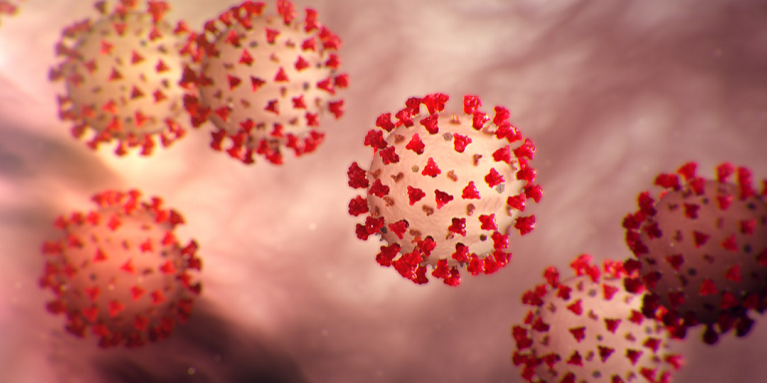
What Are Coronaviruses?
Coronaviruses are a large family of respiratory viruses that includes COVID-19, Middle East Respiratory Syndrome (MERS), and Severe Acute Respiratory Syndrome (SARS). Coronaviruses cause diseases in animals and humans. In humans, the viruses can cause mild respiratory infections, like the common cold, but can lead to serious illnesses, like pneumonia.
Coronaviruses are named for the crown-like spikes on their surface.
Coronavirus Disease 2019 (COVID-19) was first reported in 2019 in Wuhan, China. COVID-19 is a disease caused by the SARS-CoV-2 virus and can be very contagious and spreads quickly.
Middle East Respiratory Syndrome (MERS) was first reported in 2012 in Saudi Arabia and spread to more than 25 other countries. About 3 or 4 out of every 10 patients reported with MERS have died. MERS cases continue to occur, primarily in the Arabian Peninsula; however, there have been only 2 confirmed cases of MERS in the US, both in 2014.
Severe Acute Respiratory Syndrome (SARS) was first reported in Southern China in 2002. Infection with the SARS virus causes acute respiratory distress (severe breathing difficulty), with a mortality rate of about 10%. The illness spread to more than 2 dozen countries in North America, South America, Europe, and Asia before the SARS global outbreak of 2003 was contained.
Burden
More than 1 million people have died from COVID-19 in the US since the virus first emerged in Wuhan, China in December 2019. According to preliminary estimates from the Centers for Disease Control and Prevention (CDC), there have been at least 10 million COVID-19-related illnesses, 300,000 hospitalizations, and 35,000 deaths, during the 2024-2025 US respiratory season.
Symptoms
Most people get infected with human strains of coronaviruses at some point in their lives. These illnesses usually last for a short amount of time, and symptoms may include:
- Fever
- Chills
- Cough
- Headache
- Runny nose
- Shortness of breath
- Sore throat
Additional symptoms have been reported with COVID-19. Coronaviruses can cause other more serious illnesses, such as pneumonia or bronchitis. This is more common in individuals with heart and lung disease, those with weakened immune systems, infants, and older adults.
Prevention
Coronaviruses are spread through respiratory droplets when an infected person coughs, sneezes, or talks. The viruses can also be spread through:
- Close personal contact, such as touching or shaking hands
- Touching an object or surface with the virus on it, then touching your mouth, nose, or eyes
There are steps you can take to help stop the spread and protect yourself and others from severe illness:
- Get vaccinated as recommended
- Wash your hands with soap and water for at least 20 seconds
- Avoid touching your eyes, nose, and mouth
- Cover coughs and sneezes with a tissue
- Clean and disinfect objects and surfaces
- Avoid close contact with people who are sick and stay home if you are sick
- Wear a face mask, particularly if you are at high risk for severe disease
- Take steps for cleaner air, such as opening windows or going outdoors
COVID-19 vaccination is the best way to protect against severe disease and death from COVID-19.
Treatment
The Food and Drug Administration (FDA) has authorized or approved treatments for certain individuals who are more likely to get very sick from COVID-19. If you test positive, contact a trusted healthcare professional immediately to see if treatment is right for you.
For all patients who have COVID-19 or other coronaviruses, supportive care is recommended:
- Take pain and fever medications
- Use a humidifier or take a hot shower
- Drink plenty of liquids
- Stay home and rest
Updated July 2025
Sources: Centers for Disease Control and Prevention, Food and Drug Administration
Related Resources
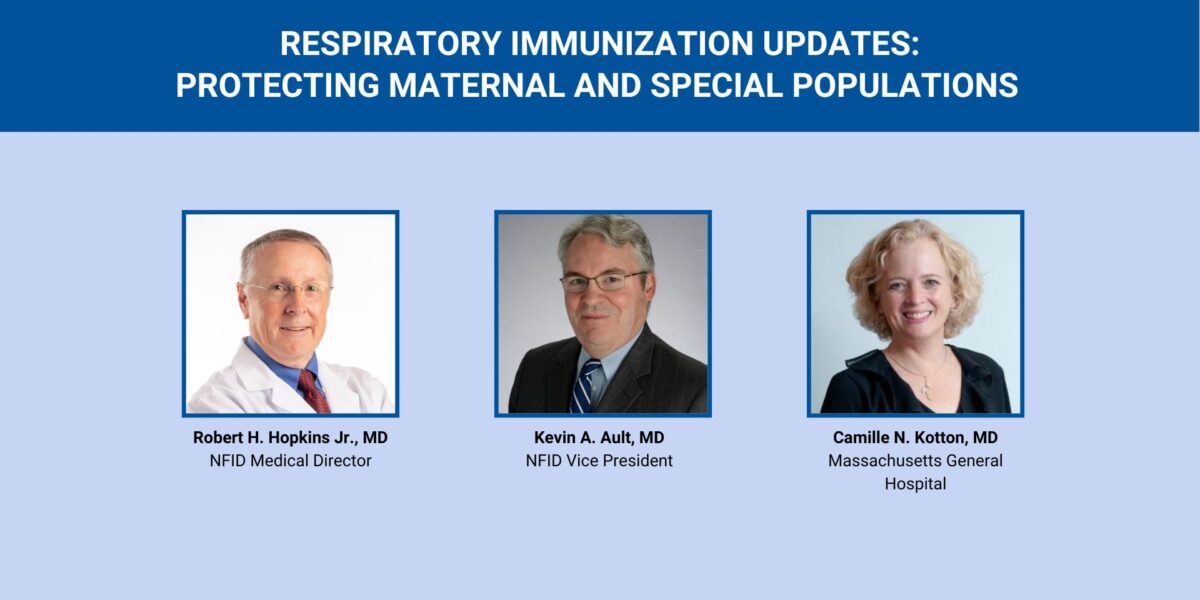
Respiratory Immunization Updates: Protecting Maternal and Special Populations
In this recorded webinar, NFID hosts a discussion on the importance of respiratory vaccination among pregnant women and immunocompromised individuals …
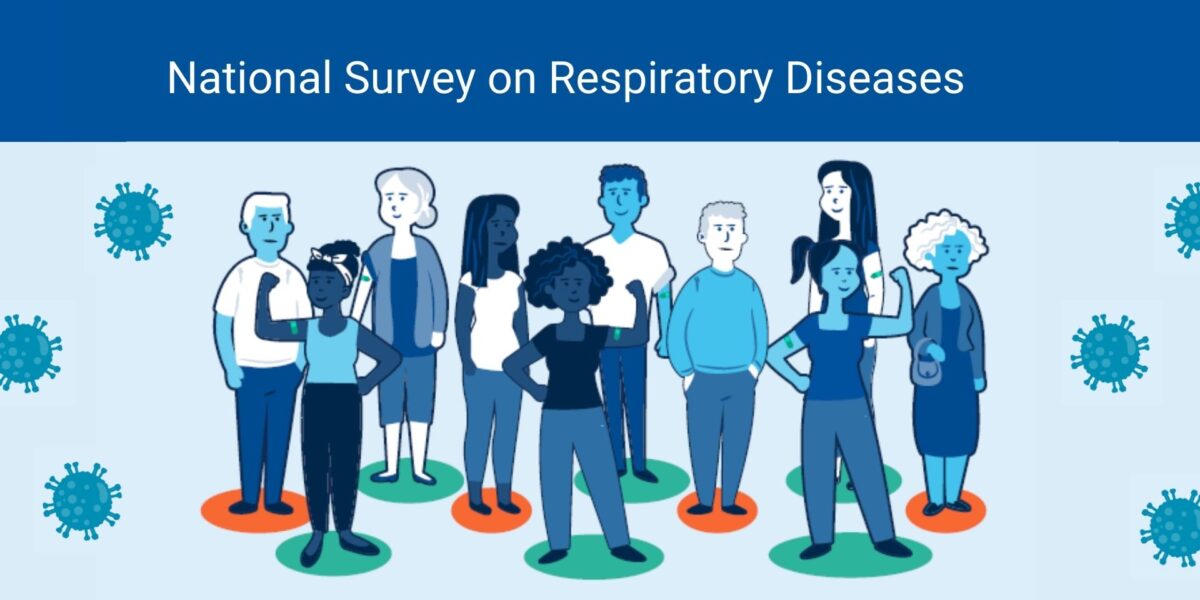
2025 National Survey on Respiratory Diseases
The 2025 national survey examines attitudes and behaviors regarding flu, RSV, COVID-19, and pneumococcal disease.
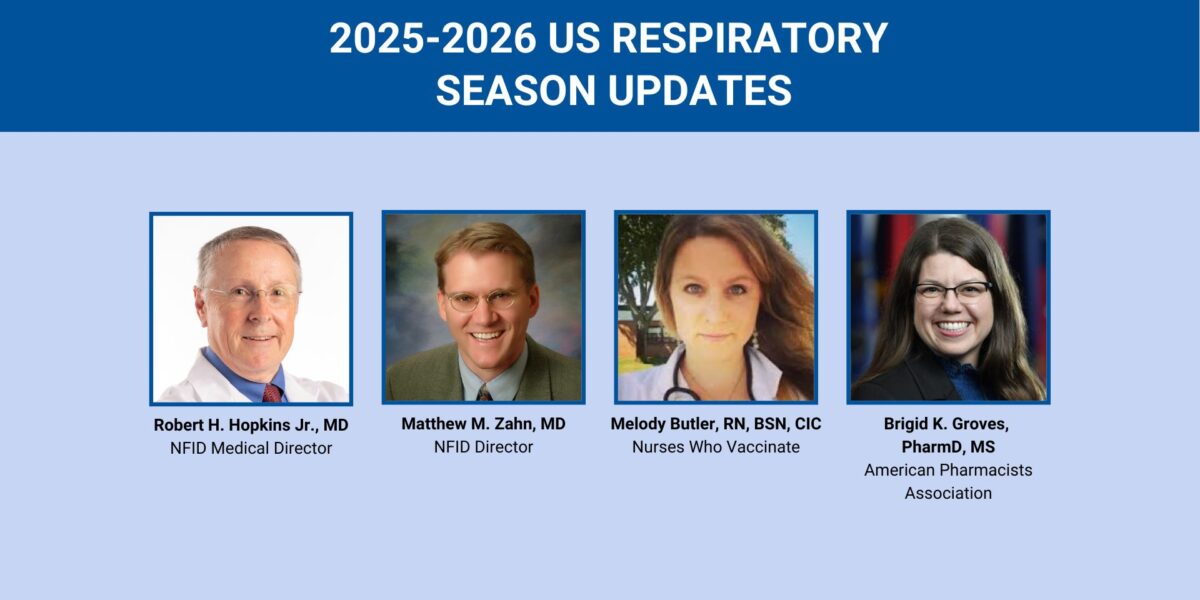
2025-2026 US Respiratory Season Updates
In this recorded webinar, NFID hosts a discussion highlighting the importance of immunization to help protect against severe illness during the upcoming respiratory season …
Related Posts

5 Reasons Why Vaccines Are Good for Your Heart
For people with heart disease, getting vaccinated is as important to staying healthy as diet and exercise
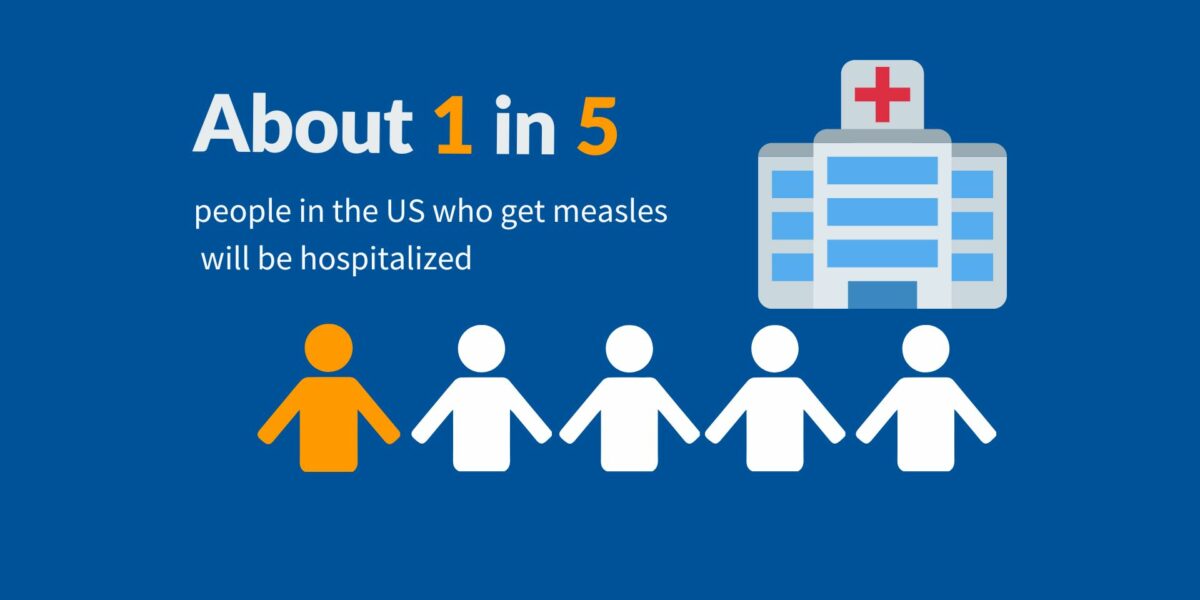
News Round-Up: Vaccines, Measles, Flu, and COVID-19
News and expert insights on COVID-19, influenza, measles, outbreak preparedness, and vaccine policy—including growing concerns about data gaps, divergent immunization recommendations, and the real-world consequences for public health

NFID Calls for Evidence-Based Guidance as Many People Skip Life-Saving Respiratory Vaccines
Survey reveals misconceptions about vaccines and declining vaccination rates
